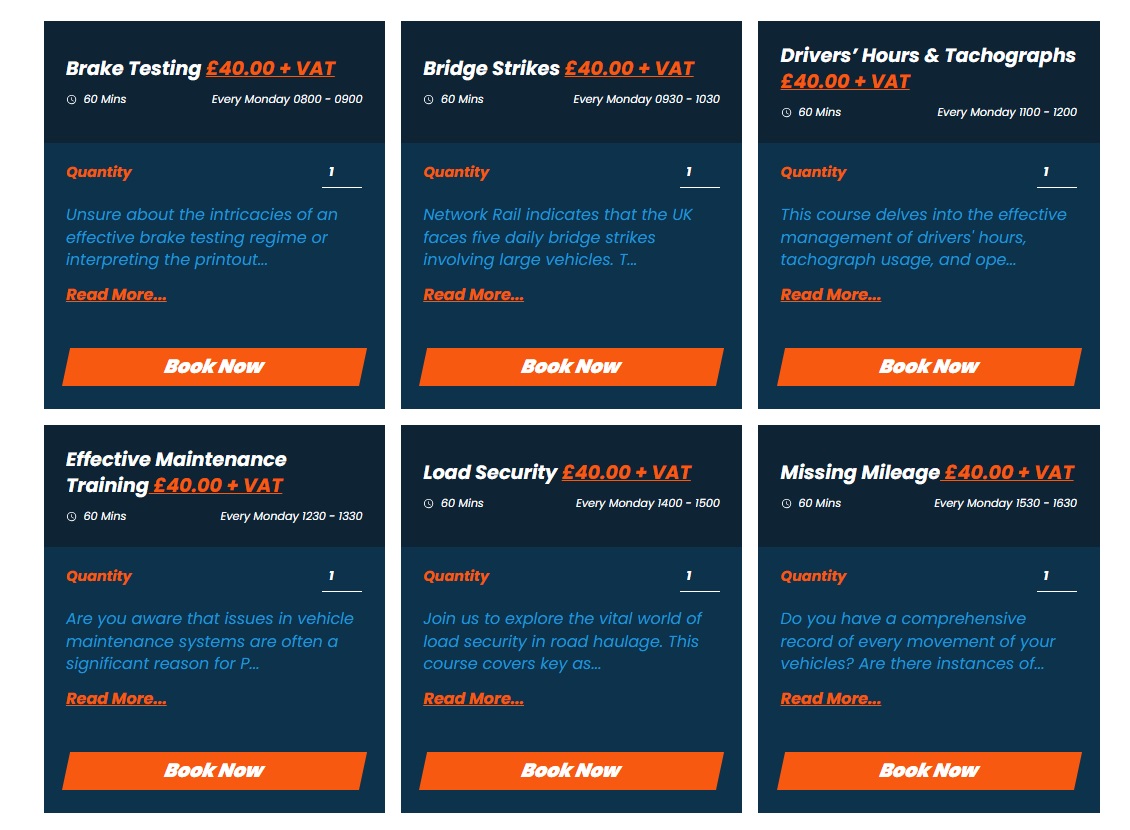Preparing for an operator licence audit can feel overwhelming, especially with stringent requirements for compliance and record-keeping in the haulage industry. However, by staying organised and taking proactive steps, you can streamline the process, stay compliant, and ensure your business is ready. Here are our top 10 tips for a successful operator licence audit, designed to help HGV operators like you achieve full compliance.
Top 10 Tips to Help HGV Operators Prepare for a Successful Audit
1. Organise Your Records for Easy Access
Efficient record-keeping is essential for operator licence compliance. Organise your records in advance, including maintenance schedules, driver registers, inspection sheets, and compliance documents. Make sure records are stored systematically, either digitally or in a filing system, to allow quick access during the audit.
2. Regularly Review Compliance Documents
A successful operator licence audit depends on up-to-date records. Review compliance documents regularly, ensuring that they reflect current standards, including drivers’ hours, daily walk-around checks, and safety inspections. Staying proactive in reviewing and updating these documents will demonstrate a solid commitment to regulatory compliance.
3. Consider a Hauliers Hub Membership Package
Investing in a Continuous Compliance Support package helps HGV operators manage their compliance obligations. Our package includes access to tools like the Hauliers Hub, where you can store documents, review compliance updates, and schedule ongoing audits for peace of mind.
4. Stay Updated on Road Haulage Industry Standards
The haulage and transport industry is constantly evolving, with frequent updates to regulations and standards. Make it a point to stay informed about new requirements by subscribing to industry newsletters, joining HGV operator forums, and keeping in touch with a reliable transport compliance consultant.
5. Conduct a Self-Audit Beforehand
A self-audit can be invaluable in preparing for an official operator licence audit. Go through your records, checklists, and compliance protocols to identify and resolve any issues before they come under scrutiny, ensuring you’re fully prepared.
6. Use Digital Tools to Simplify Record-Keeping
Using digital record-keeping tools can save time and make audits easier. Cloud-based systems allow you to store and organise documents, making them easily accessible and reducing the risk of lost or damaged files.
7. Provide Comprehensive Staff Training
Your drivers and staff play a critical role in compliance. Regular training sessions covering topics like safe loading, drivers’ hours, daily walk-around checks, and reporting procedures can help ensure that everyone understands and adheres to regulatory requirements.
8. Schedule Regular Maintenance Checks for Your Fleet
Routine maintenance is a key focus of any operator licence audit. Schedule and document regular maintenance checks for all vehicles in your fleet, demonstrating your commitment to road safety and the reliability of your HGVs.
9. Prepare Your Facility for the Audit
Beyond records, your facility itself is subject to inspection. Ensure it’s organised and meets health and safety standards. A clean, well-maintained workspace will show auditors that you take compliance and safety seriously.
10. Seek Expert Help if Needed
Navigating operator licence compliance can be complex. If you’re uncertain about any aspect of your audit preparation, consulting with a professional in transport compliance can be a game-changer. A compliance expert can offer tailored advice, conduct mock audits, and identify areas for improvement to ensure you’re fully audit-ready.
Why Choose a Compliance Partner for Your Operator Licence Audit?
Partnering with a transport compliance consultancy can ease the audit process, offering valuable resources, expertise, and support throughout your journey. Whether it’s through regular audits, compliance tools, or ongoing guidance, a professional partner can help you keep your HGV operation compliant and streamlined.
By following these top 10 tips, you’ll be well-prepared for your operator licence audit. Preparing in advance, staying organised, and being proactive with compliance will ensure you’re ready for any audit, reinforcing your commitment to safety and reliability in the haulage industry.










